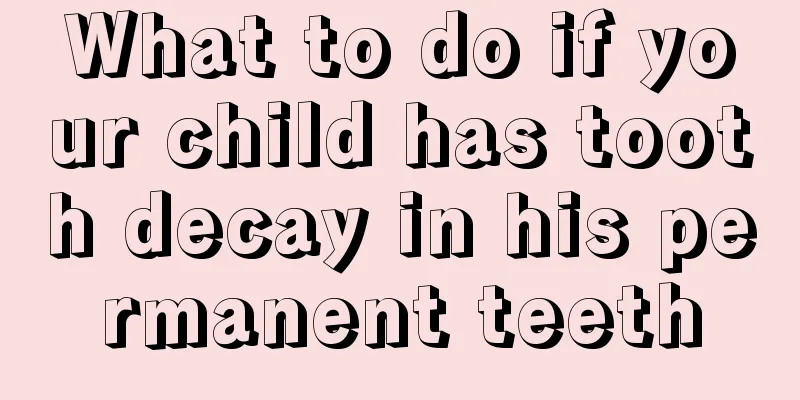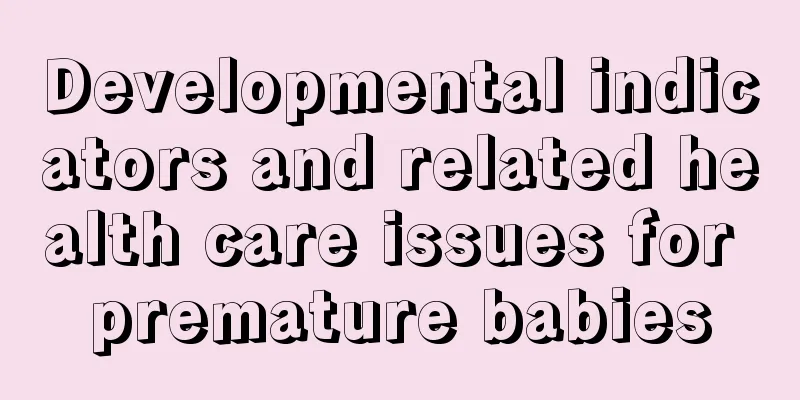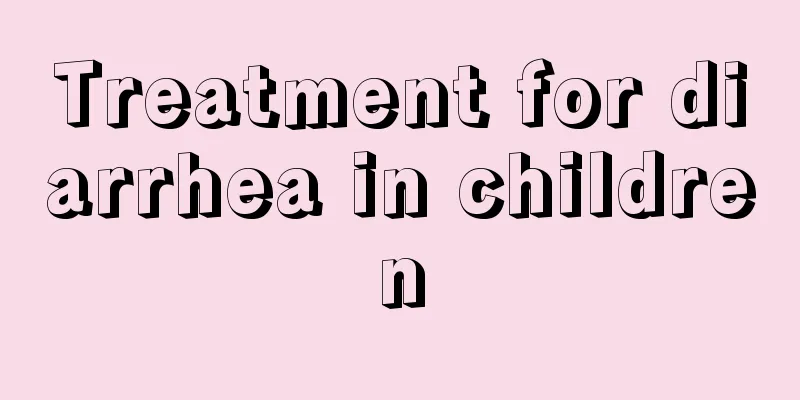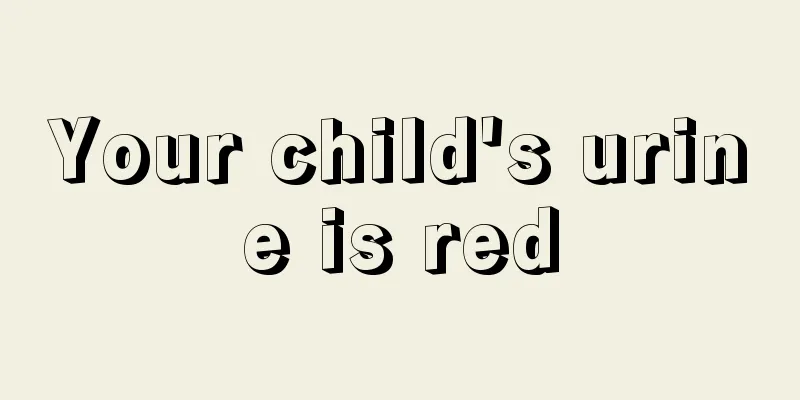What to do if your child has tooth decay in his permanent teeth

|
Children's teeth are not fully developed at a young age, so they need to replace their teeth at a certain age, and the previous bad teeth fall out and grow into new healthy teeth. However, children particularly like to eat sweets and sugars, so parents have to pay attention to the problem of children's tooth decay. It is recommended that parents should carefully supervise their children's tooth brushing and try not to let them eat sweets. If children do not pay attention to oral hygiene, especially if they eat too much sweets, they are very likely to develop cavities. If the child has already changed his teeth, cavities must be treated promptly. What should I do if my child has cavities? Once a child is found to have cavities, he or she should be taken to a dental hospital for medication treatment in time. In addition, in daily life, you should also pay attention to letting the child eat less high-sugar foods and develop a good habit of brushing their teeth in the morning and evening. What to do if your child has cavities Caries, commonly known as tooth decay, is a bacterial disease that can lead to pulpitis and apical periodontitis, and even cause inflammation of the alveolar bone and jawbone. If not treated promptly, the lesions will continue to develop, forming caries holes, and eventually the crown of the tooth will be completely destroyed and disappear. The ultimate result of its development is tooth loss. If a child has tooth decay, he or she should be taken to a dental hospital for treatment in a timely manner. Drug treatment is a method of using drugs to inhibit the development of caries on the basis of grinding away caries. It is suitable for shallow caries in permanent teeth that have not yet formed cavities, and shallow and medium caries cavities in deciduous front teeth. Commonly used drugs include silver nitrate and sodium fluoride. In addition, we must actively prevent children from having tooth decay: 1. Brush your teeth in the morning and evening and develop a good habit of rinsing your mouth after meals; 2. Eat less acidic foods and avoid snacks before going to bed; 3. Eat less foods high in sugar, such as sugar, chocolate, biscuits, etc.; 4. Do not eat too much hard food to avoid tooth wear; 5. Take part in physical exercise regularly and have regular oral examinations. Generally, people over 12 years old should have an oral examination once a year; 6. In daily diet, you should consume more nutritious foods rich in calcium, inorganic salts, etc., and eat high-fiber rough foods as much as possible. Why are children prone to tooth decay? 1. The shape of deciduous teeth can easily cause caries in baby's deciduous teeth. We all know that people have two sets of teeth in their lifetime. The teeth that have not yet gone through the tooth replacement period are called deciduous teeth. There are deep and narrow pits and grooves on the surface of deciduous teeth, which easily allow food debris to be retained, thus creating favorable conditions for the growth of dental plaque. 2. The development process of deciduous teeth can also easily cause deciduous tooth caries. The enamel and dentin of deciduous teeth are thinner than those of permanent teeth. Once deciduous teeth are affected by caries, the caries can quickly develop into deeper layers, and the carious deciduous teeth will also infect the adjacent teeth, leading to more and more cavities. 3. The baby’s diet structure can also easily cause tooth decay. Because babies’ diets are mostly sweet, the high sugar content can easily promote the growth of bacteria in their mouths, which can easily lead to tooth decay. 4. The baby has poor oral cleaning ability. Basically, in addition to brushing our teeth, we rely on the saliva in the mouth to kill oral bacteria, thereby achieving the self-cleaning ability of the mouth. However, babies often sleep and sleep for long periods of time, and the amount of saliva secreted during sleep decreases, so it is not conducive to the self-cleaning ability of the baby's teeth. |
<<: What kind of nasal spray is suitable for children?
>>: What to do if your child has tooth decay in his front teeth
Recommend
How to relieve symptoms of endocrine disorders in children
Endocrine disorders will have different symptoms ...
What should I do if my baby has a high fever and convulsions?
Babies who are not in good physical condition are...
What causes small pimples on children's eyelids?
In real life, children's skin is relatively d...
Why do children always have fever at night?
When a child has a fever, the adults are the ones...
At what age do children grow taller?
I believe that as a mother, in addition to hoping...
What is the reason why my baby has yellow-green watery stool?
Diarrhea is often caused by eating spoiled food o...
What should a baby eat to stimulate his appetite if he has a poor appetite?
Traditional Chinese medicine believes that people...
Symptoms and causes of baby's fever and convulsions
Symptoms of fever and convulsions in babies are q...
What to do if your child's head is crooked? Pay attention to adjusting
Children's bones are relatively soft, so many...
What to do if your child has a fever and chills
At present, many parents have reported that their...
What to eat for children with precocious puberty
Generally, boys who develop secondary sexual char...
The cause of the newborn baby's yellow face
Every parent is very concerned about the health o...
What should I do if my three-month-old baby can't straighten his legs?
The baby's physical development is very impor...
Three month old baby is constipated and farts
Some three-month-old babies suffer from constipat...
How to deal with breastfeeding baby getting angry
How to deal with a breastfed baby getting a sore ...









